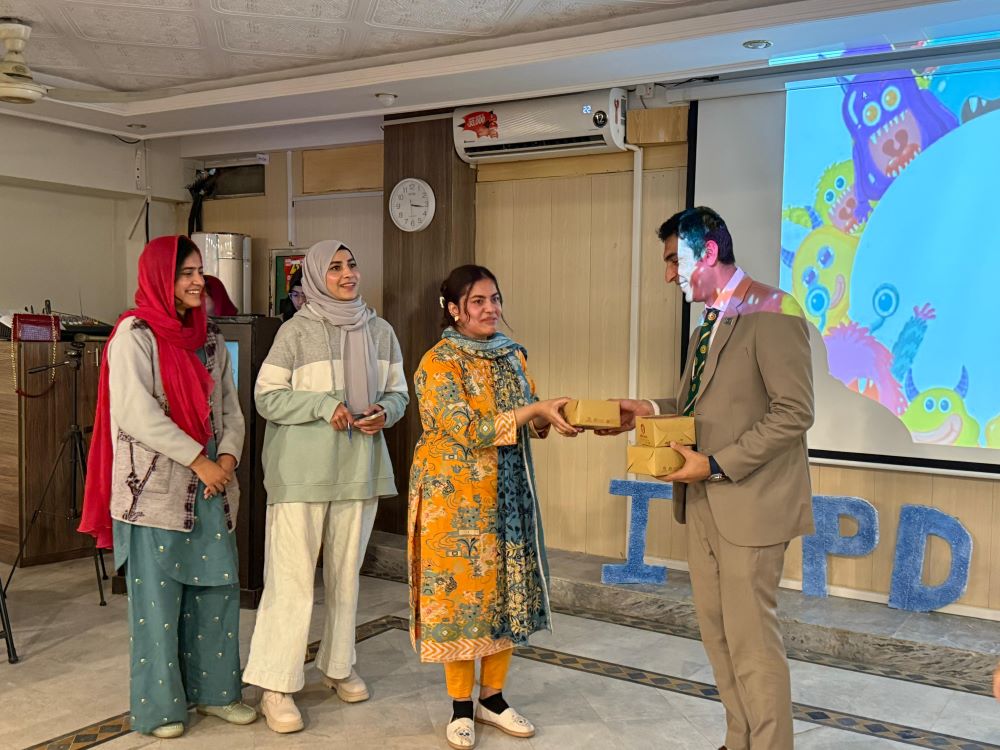
The NUMS Scientific Society, under the Department of Student Affairs, led a remarkable initiative with the Epidemic Preparedness Training Session held on December 26, 2024, in observance of World Epidemic Day. This event underscored the critical importance of proactive readiness to address global health crises, aligning closely with the United Nations Sustainable Development Goals (SDGs), particularly SDG 3: Good Health and Well-being, SDG 4: Quality Education, and SDG 17: Partnerships for the Goals.
The session commenced with a warm welcome from Ms Kanza Batool, who highlighted the importance of equipping communities to handle health crises effectively. Following a recitation of the Holy Quran and the National Anthem, Muhammad Haseeb Ahmad, Vice President of the Scientific Society, delivered an insightful welcome note emphasizing the role of epidemic preparedness and public health awareness in fostering a resilient society.
The session organizers designed the comprehensive training module to empower future leaders in biosciences and public health. One of the highlights was a tabletop exercise simulating a fictional epidemic scenario. Participants engaged in dynamic activities such as debates, mock sessions, and virtual storytelling using interactive cards. Additionally, practical demonstrations on Personal Protective Equipment (PPE) added hands-on value to the training. The faculty from Biological Sciences served as master trainers. At the same time, students from the Science Society, Drama Club, and Media & Art Society actively contributed by organizing creative elements like a pathogen hunt and tabletop exercises.
Dr. Mahwish Ali, Assistant Professor, Department of Biological Sciences, delivered a compelling address on the history of epidemiology, outbreak management strategies, and essential statistical methods. Her presentation was followed by engaging activities aimed at deepening participants' understanding of disease prevention and control. The Pathogen Hunt challenged participants to identify and manage infectious agents, while the Card Match activity focused on selecting preventive measures to combat simulated outbreaks. A thought-provoking open debate facilitated by the NUMS Debating Club explored critical topics such as misinformation, outbreak challenges, and innovative public awareness strategies.
Adding a practical edge to the session, Dr Wasim Sajjad, an IFBA-certified professional and Biosecurity Champion Fellow, demonstrated the "breaking method" for glove removal. This hands-on exercise focused on minimizing contamination risks, reinforcing the importance of infection control and laboratory hygiene. The Scientific Society, known for its commitment to advancing health security, has spearheaded numerous initiatives, including campaigns on antimicrobial resistance (AMR), capacity-building programs, and collaborative research in epidemic preparedness. These efforts reflect their dedication to fostering resilience against health challenges and contributing to the global sustainability agenda.
The session concluded with Muhammad Ismail Air Cdre Muhammad Ismail, SI (M), (Retd), Consultant QA, praising the Scientific Society's efforts. He urged young scientists to take proactive roles in strengthening health security frameworks through innovation and collaboration. Despite the challenges, the training session marked a significant step towards cultivating a culture of preparedness and aligning with global sustainability goals, paving the way for a safer and healthier future.
.jpg)
.jpg)
.jpg)
.jpg)
.jpg)